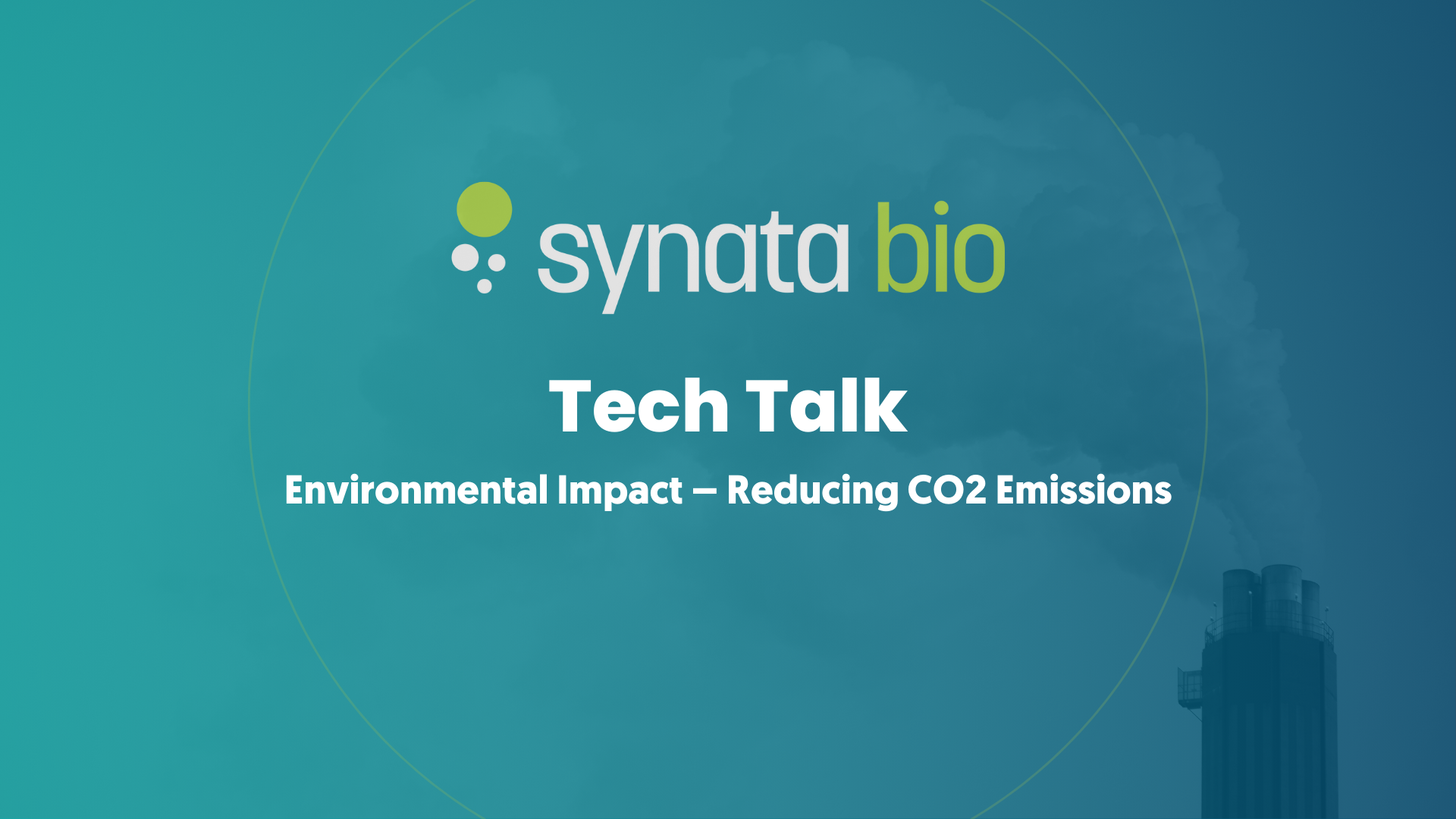News and Insights

December 7, 2024
Synata Tech Talk: Environmental Impact – Reducing CO2 Emissions
At Synata Bio, we’ve developed proprietary technology that captures and repurposes CO2 emissions, turning them into valuable products. Our waste carbon repurposing process makes it simple for businesses to reduce their carbon footprint, save on costs, and improve efficiency.
“Think of it as nature’s recycling—where we transform carbon emissions into renewable products that benefit both the planet and your business.”
– Mary Bjorklund
Here’s how our technology works:
- CO2 Capture: First, we capture CO2 emissions directly from industrial processes. Whether from power plants, chemical manufacturing, or other industrial facilities, our technology intercepts these emissions before they enter the atmosphere, reducing their immediate environmental impact.
- Conversion to Ethanol: After capturing the CO2, we use a process called gas fermentation, where unique microorganisms feed on the carbon and convert it into ethanol—a low-carbon fuel alternative. This ethanol can then be used in industries ranging from transportation to manufacturing.
- Net Carbon Reduction: The beauty of this process is that it results in a net reduction of CO2 in the atmosphere. For every ton of product produced, we remove 2 tons of CO2. That’s the equivalent of planting trees that absorb three times the CO2 that would have been emitted.
“With our technology, CO2 doesn’t just disappear—it’s converted into something valuable, helping businesses achieve their sustainability goals while boosting profitability.”
– Mary Bjorklund
By utilizing waste carbon in this way, we do more than just mitigate emissions. We actively reduce the carbon burden on the planet, turning industrial waste into a resource.
What Synata Bio Can Achieve with CO2 Reduction
The potential impact of our technology is significant. By utilizing over 50 million tons of waste carbon, we aim to remove 100 million tons of CO2 from the atmosphere. To put this into perspective, this is equivalent to planting about 2.5 billion mature trees, which absorb CO2 over several decades.
This large-scale reduction in emissions is achievable by repurposing waste carbon from various industrial sources. This addresses a global emissions challenge and creates new business opportunities by contributing to a circular economy—where carbon is treated as a resource rather than a pollutant.
“Turning CO2 emissions into products isn’t just theoretical—it’s actionable. Our technology will drive results in industries like chemicals and manufacturing, and the potential for further impact is enormous.”
– Mary Bjorklund
By converting waste carbon into usable products, businesses reduce their environmental footprint and create valuable, sustainable products that generate new revenue streams. This innovation positions companies for future growth in a more sustainable, circular economy.
Reducing CO2 emissions is one of the most urgent challenges of our time. Synata Bio’s waste carbon repurposing technology offers a practical, scalable solution for businesses looking to reduce their emissions and transform them into valuable products like ethanol and sustainable aviation fuel.
Want to know
more about this?
Together, we can create a world where sustainability and success go hand in hand. Contact us today to learn more about Synata Bio and how we can help your organization thrive while positively impacting
the environment.
